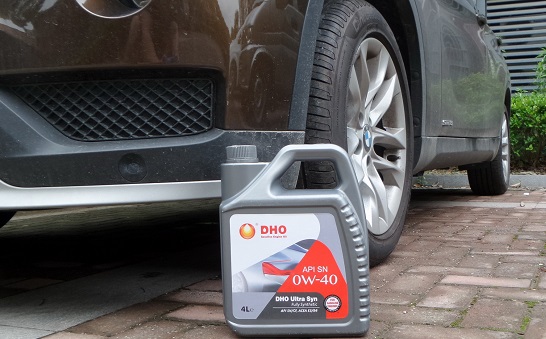A country known as factory to the world, China sees exports as a major driving force for economic growth. In most industries, export opportunities are pursued as a way to increase sales and sometimes to take up slack production capacity.
But the lube industry is an exception. Exports of lubricants, greases and base oils were tightly controlled for years, until January of this year when the national government eliminated a requirement that suppliers go through one of three state-owned companies to sell abroad.
An export license is still required, but the change signaled that Beijing intends to provide an outlet for surplus production capacity of lubricants. According to government statistics, domestic lube production capacity reached 5.7 million tons per year in 2015. Estimates of domestic demand range between 5 million t/y and 6.5 million t/y, but the country also imports millions of tons of finished lubes each year.
So far, the regulatory change has not made much of an impact. China exported 6,045 tons of lubricants in April, compared with 9,951 tons and 5110 tons, respectively in March and February, according to customs data.
In interviews with Lube Report Asia, many industry insiders said they have little interest in exports because they believe foreign consumers, especially those in the western markets, tend to be sophisticated about their purchases of lubricants and that Chinese lubes are not competitive in terms of quality.
Other concerns include political and economic instability in regions that companies would like to target and difficulty finding trusted, capable distributors. Why take risks in exporting, Chinese suppliers said, while the domestic market is big enough?
Seang Chhay, sales manager at Bascarito Development, a lube distributor in Phnom Penh, Cambodia, thinks such concerns are reasonable.
The economy in Cambodia has been slow this year, so people dont like to spend, which means fewer people are buying new cars, he told a reporter. It affected motor oil sales. Chhay sells motor oils supplied by multinationals and Thai companies to various types of Cambodian consumers.
Wealthy people who like to buy expensive new cars often choose multinational brands, while people with average or less income are usually the owners of used cars, and they like to buy cheap lubes such as those from Thailand, Chhay said.
He acknowledged that there are few Chinese made lubes in the market. We see lubes as something Western, not Chinese. China is not known as a country for lubes in Cambodia, he said.
While Chhay personally is not against working with Chinese lube companies, he said this year is not a good time to import any more lubes due to the sluggish market.
Some local lube distributors have closed their business, and my business is also struggling. Hopefully next year the economy will pick up and the lube market will start getting better again, he said.
But some Chinese lube suppliers see export as an opportunity for long-term growth. One of them is Shanghai-based Donghao Oil, which is selling motor oils in Sweden, a surprise to many Chinese lube companies intimidated by high standards in developed markets.
Photo: DongHao

“In Sweden, our lubes target the mass market. Sales are good because we are getting more orders from our local distributor, said Sun Weimin, export manager at Donghao.
Right now, exports only contribute around 1 percent of Donghaos revenue, but backed by the success in the Swedish market, the company aims to bring its lubes to more countries.
Orders from South America and Central Asia are already rolling in, although the amount is small, said Sun. Donghao is also in talks with some distributors in the United States, but the American market, attractive and challenging, could take us lots of time and patience to get in, Sun added.
Donghao, which produces motor oils and industrial lubes, is currently only interested in export of motor oils as it suits the companys branding strategy.
We want to build our name in the global market. With industrial lubes our brand gets limited exposure as the lubes are pre-filled in the machines shipped outside China, Sun said.
While acknowledging that in general Chinese lube companies could face many challenges in the global market, Sun said quality is his least concern.
The intense competition in the Chinese market in recent years has largely improved the quality of Chinese lubes, which, to my knowledge, reaches the average level in the global market, he said.
However, it is the price that disadvantages Chinese lubes, Sun said.
Various taxes imposed throughout the supply chain – such as consumption tax and value-added tax – push up prices, Sun said. Take Mobil, for example: in the United States, a quart of 5W-30 full-synthetic motor oil is priced at U.S. $6.50, but the same product is sold at about $18 in China.
If China is determined to encourage lube export business, they should really introduce some supportive tax policies, Sun said.
High prices also shunned away base oil exporters, said a source at Hainan province-based refinery Handi Sunshine Petrochemical, which sells Group II base oils to South America, Indonesia and Vietnam.
She said each ton of base stock costs a company over 1,700 (U.S. $258.7) in consumption tax alone.
Without rolling out a tax refund scheme, few Chinese base oil refineries can benefit from the export opportunities,she said, adding Handi is one of the very few Chinese base oil refineries approved to have taxes fully refunded.
Thats why we are one of the very few Chinese private refineries selling base oils outside China, she said.